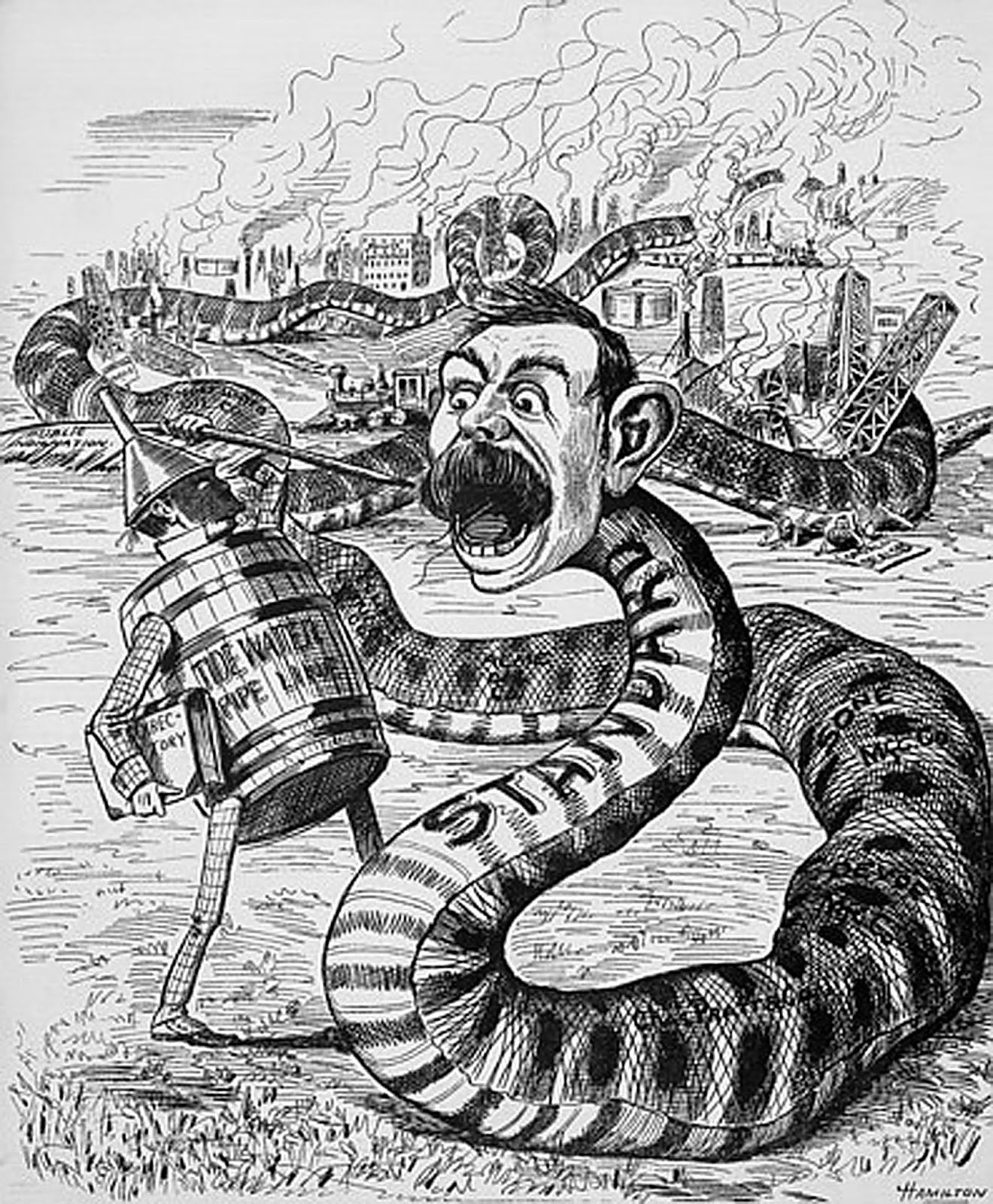

There was disagreement at home Mark Twain complained that the stars and bars should be replaced by the skull and crossbones. Dictators and the Mafia soon owned Cuba, dictators and corporations soon owned the Philippines. From selling rotten meat and guns to the military to dividing up the spoils of local resources, the critics were shown to be correct. Socialists, at least the leadership, understood, claiming that in this war, as in most, we will provide the corpses, they will reap the profits. In the case of the Philippines that meant crushing the local resistance and allies with a brutality dictators throughout history would understand.

In both cases, Cuba and the Philippines, the pattern persists: support rebel groups fighting the occupation then betray them, putting into place the same collaborators used by the former power. President McKinley claims that we must civilize and christianize the brown brothers, incapable of governing themselves, overlooking that thanks to the Spanish occupation most Filipinos were already catholic. war with Spain as not one of liberation, as the rhetoric would have it, but a supplanting of a colonial power. Theodore Roosevelt, the soon to be president, is quoted in 1897, “I should welcome almost any war, for I think the country needs one.” and, the psychopathic, “…no triumph of peace is quite so great as the supreme triumph of war.” Zinn describes the U.S. Zinn remarks that… “in a world of victims and executioners, it is the job of thinking people not to be on the side of the executioner.” There are many discouraging defeats and you could describe the fewer successes as making up what is admirable about the U.S.

His sympathies obviously lie with the People as they resist the rapacious rulers.

Zinn chronicles the malignant force as it sweeps across and occupies the “new” continent, focusing on the United States. Published just short of century’s end, 1983, he is careful to set the tone by including from the earlier book his account of the great navigator Columbus’ arrival in the Americas, devastating for the natives who were enslaved, slaughtered or ruthlessly exploited. Howard Zinn’s book is excerpted from his million-selling, A People’s History of the United States (1978).


 0 kommentar(er)
0 kommentar(er)
